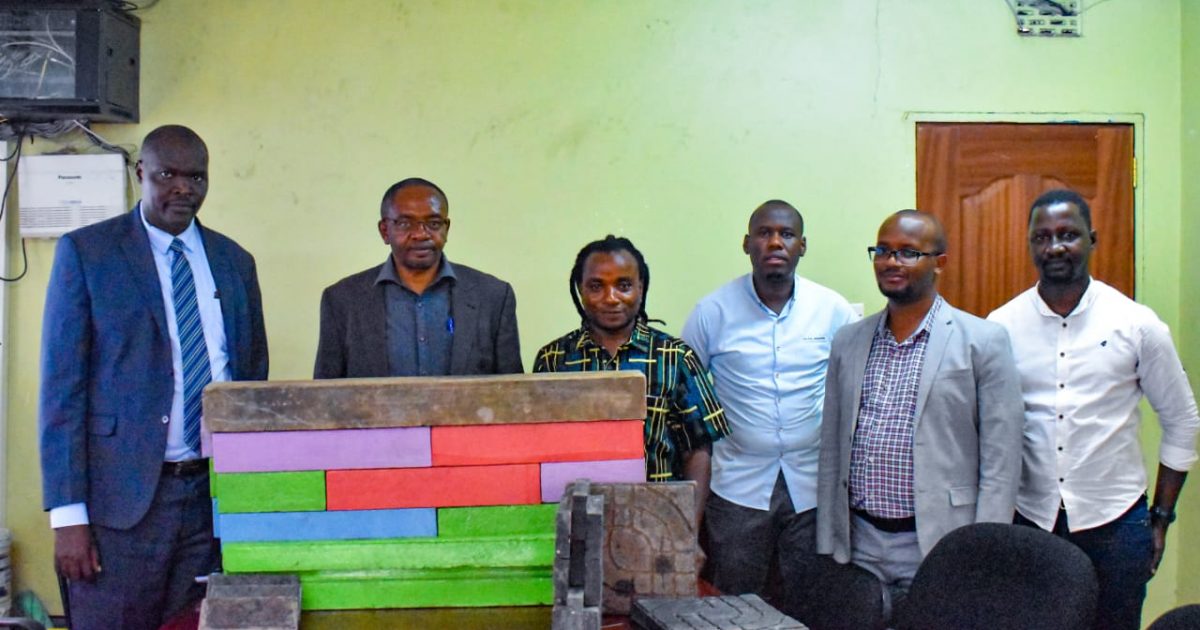To 34-year-old Joseph Muita’s world, garbage is considered as gold. This is evidenced at Muita’s Constructive Plastics Limited Company where the dirty plastic wastes meant for disposal are transformed into valuable construction products.
At the firm, plastic waste is recycled into strong and beautiful construction products such as cabro paving blocks, manhole covers, litter bins, plastic poles and interlocking blocks, with the firm said to crush up to a hundred tonnes of plastic waste in a month.
Muita says his passion for recycling waste was driven by the critical need to have a clean environment and the worrying reports including a report for International Environmental Day, where the United Nations Organization warned that at current levels the earth could be awash with 12 billion tonnes of plastic trash by the middle of the century.
With the country grappling with deforestation and depleted forest cover, Muita emphasized the need for a viable solution which he said could be found in plastic building materials as opposed to wooden materials, adding that Constructive Plastics Limited’s products were offering easy solutions through provision of alternative and more affordable building materials particularly to low-income earners and those living in informal settlements.
“Waste has the potential of creating houses for millions of homeless people while curbing pollution in the process and Kenyans are looking for quality and affordable housing, not quality that is imported and of high cost,” said the entrepreneur.
His plastic innovation has caught the attention of the County Government of Nakuru which is seeking to partner with his firm in production of eco-friendly building and construction materials that utilize solid waste and turn it into valuable resources.
While making his presentation to the County officials headed by County Executive Committee Member (CECM) in charge of Environment, Energy, Natural Resources and Climate Change Dr Nelson Maara, the entrepreneur explained that after collection, the plastic waste is sorted, cleaned and then crushed.
It is then mixed with glass waste before being put into an extruder machine where the polymers are heated and combined with sand and a hardener in a process referred to as extrusion.
The plastics are then molded into different shapes that are used in the construction industry to build low cost, safe and sturdy houses. The firm, located in Nakuru East constituency, operates 24 hours a day, enabling it to recycle 100 tonnes of plastics every month.
Muita further explained that the products made vary in density and size depending on the need adding that the advantages of using the products was that the termites don’t eat them, don’t rot, and cannot be vandalized for firewood, something that is widespread with timber products.
According to Muita, pre-casting enables the client to customize their houses to taste in terms of brick colour and shape, and even match the pavers. This he said results to the house being sturdy, less costly and with little time consumed during construction, as no time is lost in mixing mortar and placing it between bricks.
“It is our desire to see Kenyans construct a two-bedroom house in one month, at a cost of Sh850,000,” said the entrepreneur.
Muita revealed that the firm has contracted more than 200 youths to collect discarded plastics and rubber from dumpsites, estates, shopping malls and companies in addition to contracting communities-based organizations who supply it with semi-processed waste material such as plastics.
Saying that waste was becoming a major menace in many suburbs and constitutes the biggest challenge in solid waste management, Muita said he was transforming a social challenge into an opportunity and called on government, private sector, non-governmental organizations and financial institutions to come together to chase a common goal.
While acknowledging that Plastic in itself was not a problem, Muita said it was the way Kenyans dispose of it that was increasingly becoming a problem and advised that more focus should be on the way plastic waste is managed adding that the firm’s recycling model could turn out to be one of Africa’s best bets in conserving the eenvironment.
While appreciating the conservation efforts by the firm, County in-charge of Environment, Energy, Natural Resources and Climate Change Dr Nelson Maara, observed that Kenyan construction cost was high because most of the construction materials were being imported in addition to the fact that wooden poles are prone to vandalism for firewood or destruction by ants.
“It is estimated that by 2050, the world’s population will be somewhere around 8.6 billion people, with about 1.3 billion of these living in Africa. Already, decent affordable housing is a problem and when you look at it, apart from land, the cost of materials is the other factor that pushed construction costs up, yet we have so many resources like plastics that we have not exploited,” said Dr. Maara.
He adds “One kilogramme of plastic waste saves 2.5 kilograms of carbon emissions”.
He said the plastic recycling was a key step towards achieving the circular economy agenda as it will not only cleanse the environment but also create multiple job opportunities and ensure plastic clients are guaranteed 20 years.
Kenyans are not known to embrace alternative methods of construction, afraid that they could be inferior to conventional methods that they are familiar with. This explains why Portland concrete (cement-based concrete) has dominated the building industry.
By Esther Mwangi




